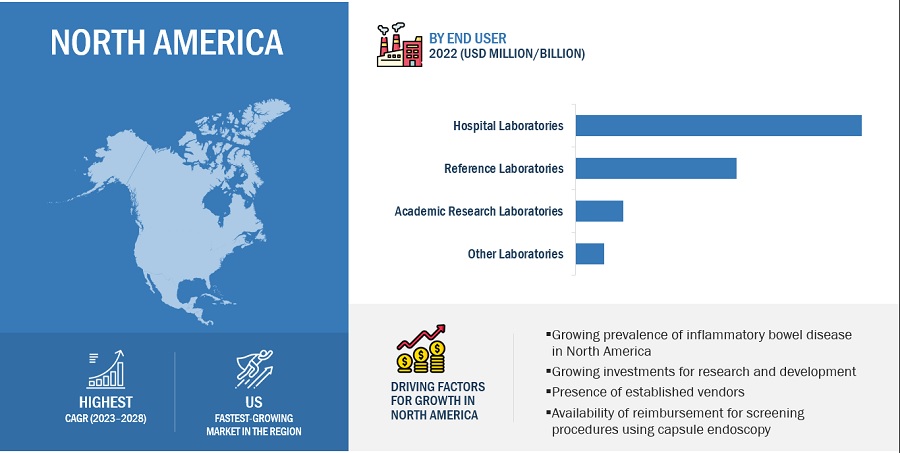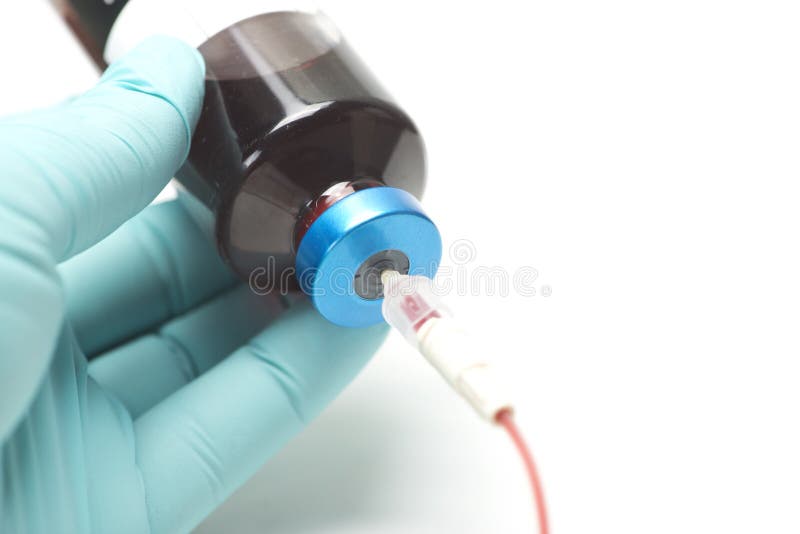Imagine a tiny, invisible enemy lurking in your bloodstream, waging a silent war against your body. This is the reality for countless individuals battling infections. But how can doctors identify these microscopic invaders and tailor treatments to effectively combat them? The answer lies in a powerful diagnostic tool: the blood culture test.

Image: www.marketsandmarkets.com
A blood culture test is a crucial laboratory procedure that allows healthcare professionals to identify and diagnose infections circulating in the bloodstream, often referred to as bacteremia or septicemia. This seemingly simple test holds profound significance, offering a lifeline for patients battling serious infections and guiding doctors in their fight against these invisible enemies.
Understanding the Invisible Battlefield: A Deep Dive into Blood Culture Testing
Our bodies are constantly battling a barrage of microorganisms, with our immune system acting as a formidable defense force. However, sometimes these microscopic invaders manage to breach our defenses, multiplying within our bloodstreams. This can lead to a dangerous condition known as sepsis, a life-threatening response to infection.
A blood culture test is akin to a microscopic detective investigation, examining a small sample of your blood for signs of infection. Like a fingerprint analysis, this test can pinpoint the culprit, identifying the specific type of bacteria or fungus responsible for triggering the infection.
The History of Blood Culture: Tracing the Roots of Diagnosis
The quest to understand and diagnose infectious diseases has fascinated scientists and physicians for centuries. In the 19th century, the use of broth cultures allowed researchers to isolate and identify microorganisms causing infections. However, it was the advent of blood culture technology in the early 20th century that truly revolutionized the diagnosis and treatment of bloodstream infections.
Early blood culture methods relied on the incubation of blood samples in specialized broths, observing for signs of microbial growth. This cumbersome and time-consuming process often took days or even weeks to yield results, leaving patients vulnerable to complications.
Modern Blood Culture Techniques: Precision and Speed
Advancements in microbiology and technology have led to the development of sophisticated blood culture systems. These modern systems utilize automated instruments that monitor and analyze blood samples for signs of microbial growth, providing results within hours or days.
One of the most notable advancements is the introduction of automated blood culture systems that incorporate continuous monitoring and automated detection of bacteria and fungi. These systems employ sensitive sensors that monitor for changes in gas levels, pH, and turbidity within the blood culture bottles, indicating the presence of microbial growth.

Image: www.dreamstime.com
The Importance of Blood Culture in Identifying the Culprit
The ability to accurately identify the specific type of microorganism causing infection is crucial for effective treatment. Different bacteria and fungi respond differently to antibiotics. Understanding the exact culprit allows physicians to prescribe the most appropriate medications, maximizing treatment efficacy while minimizing the risk of antibiotic resistance.
Imagine being diagnosed with a bacterial infection, but your doctor is unsure of the specific culprit. To be on the safe side, they might prescribe broad-spectrum antibiotics that target a wide range of bacteria. While this approach might eliminate the infection, it also risks disrupting the natural balance of your gut microbiome, potentially leading to undesirable side effects.
The Blood Culture Test in Action: Real-World Applications
The importance of blood culture testing extends beyond the diagnosis of bloodstream infections. This invaluable diagnostic tool plays a vital role in various medical scenarios, including:
- Monitoring for Infections During Surgery: Surgeons rely on blood culture tests to monitor patients undergoing procedures, ensuring they don’t develop postoperative infections.
- Guiding Treatment for Meningitis: Blood culture tests are essential for diagnosing meningitis, an inflammation of the membranes surrounding the brain and spinal cord.
- Investigating Sepsis: In cases of sepsis, blood culture tests help identify the source of the infection, allowing for targeted therapy to combat this life-threatening condition.
- Evaluating the Effectiveness of Antibiotics: Blood culture samples taken before and after antibiotic therapy can assess the effectiveness of the chosen medication, ensuring the infection is effectively eradicated.
Expert Insights: Navigating the Blood Culture Landscape
Navigating the intricate world of blood culture tests can feel daunting, but experts offer valuable guidance and insights.
Dr. Emily Carter, a renowned infectious disease specialist, emphasizes the importance of proper specimen collection for accurate results. She explains, “Ensuring the blood sample is collected and transported correctly is crucial for a reliable diagnosis. Contamination can render the test inconclusive or lead to inaccurate results.”
Dr. Carter further emphasizes the significance of patient history and clinical assessment in interpreting blood culture results. She notes, “While a positive blood culture indicates the presence of bacteria or fungi, it doesn’t necessarily mean that the patient is experiencing a full-blown infection. Doctors must consider the patient’s overall clinical picture and other relevant factors to arrive at a clear diagnosis.”
Taking Control: Empowering Yourself with Information
Understanding the purpose and significance of blood culture testing empowers individuals to actively participate in their healthcare journey. Educating yourself about this diagnostic tool can foster trust in your healthcare providers and enable you to ask informed questions about potential tests and treatments.
If you’re facing a potential infection, don’t hesitate to discuss your concerns with your doctor. Ask about the need for a blood culture test and understand the significance of the results. Empowerment through knowledge empowers you to navigate the intricate landscape of healthcare with confidence.
What Is Blood Culture Test
Conclusion: The Power of Blood Culture Testing
The blood culture test is a cornerstone of modern infectious disease diagnosis. This simple, yet powerful tool allows healthcare professionals to identify and diagnose infections circulating in the bloodstream, guiding treatment decisions and ultimately improving patient outcomes.
From its humble origins to its sophisticated modern iterations, the blood culture test remains an indispensable tool for tackling infections and securing a healthier future. Armed with knowledge about this powerful diagnostic tool, we can navigate the complexities of infectious diseases with clarity and confidence.






